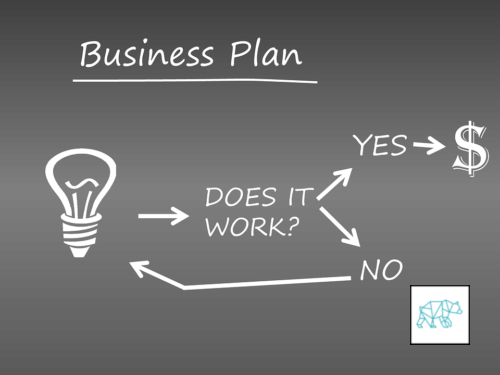
02 Oct Writing a trading plan — part 2
Writing a trading plan
Part 2
Correlations with crude oil
One of the best sources out there for learning anything about trading is definitely without a doubt; Investopedia. So many highly professional contributors and knowledge to be found there. That is also where I found this article on ‘Building the Perfect Master Plan’ by Matt Blackman.
So thanks to Matt and thanks Investopedia.
Part of a series
This is the second part of ‘writing a trading plan’. Not sure how many parts it will have because that all depends on how much work each part will take to write. I will continue this series until I have a working trading plan that I can be consistent with. I will mention all mistakes and things that did go well to the best of my ability and in all honesty. Thanks for taking the time to read it.
Writing a trading plan. Part 1.
Treating trading like a business.
First get this through your thick skull
But before we start I’d like to say the following. Yes, I am trading a very small account and some may laugh. That’s OK. This is my journey and I believe that I need to follow my own path and aim for consistency before I risk too much. It’s not that I can’t lose thousands of dollars, but why would I risk it? At this point I am getting more lucky than actually being good. I understand this and I accept this. We have to be honest with ourselves and acknowledge when it’s an ability or just sheer luck. So many brag about their gains, but you never hear them on their losses. Not me. I strive to be good at this. I don’t gamble. I don’t believe in luck. I believe in my plan. And the only way to do this is to be honest. I have no benefit in lying to you because that means I’d be lying to myself. And that is what you will read here. So go on. Mock me. Or… read on and hopefully I contribute something to your journey in becoming a trader.
DISCLAIMER
Here it goes…
Writing a trading plan is like writing a business plan. After all, don’t you think that trading is a business? I hope you don’t think it’s gambling. Even though there is something to be said about gambling being a business as well. Of course I got to see the casino business from up close in Macau and pondered their strategies and how they play with our emotions. Read that article here. There is also something to be said about an individual treating gambling as a business. Look at all the professional poker players. Do you actually think that playing poker is considered gambling to them? If you take the time to master anything it is not just about gambling anymore. It is about beating the odds. Increasing the probability of winning and keeping your losses short. This all, my friend, starts with a business plan.
Do your homework
Before you start your trading day you need to set yourself up with your bias on how to trade for that day. According to the U.S. Energy Information Administration (ie. the EIA a.k.a. ‘The oracle of crude oil’ to most people) there are a shitload of factors that influence crude oil. And I’m sure they’re right. Here is the list if you care to have a look at it.
For now, I will focus on just a part of it though. Factors that I think have a bigger and more immediate impact on crude oil prices than others are:
- News cycles:
- American Petroleum Institute (API) report usually on Tuesdays
- Energy Information Administration (EIA) report usually on Wednesdays
- Times of the threat of a war and actual war going on puts upward pressure on oil
- There have been rising correlations in other commodities and oil
- Natural gas — positive correlation
- Gold — positive correlation
- Copper — positive correlation
- Silver — positive correlation
- Soy — positive correlation
- Corn — positive correlation
- Wheat — positive correlation
- Also, correlations between crude oil futures and financial investments have strengthened
- S&P 500 — positive correlation
- U.S. dollar — negative correlation
- U.S. Bonds — negative correlation
- WTI implied Volatility — negative correlation
- Inflation Expectations — Positive correlation
When I say focus, I just mean to take these factors into consideration a little bit. The market has proven more times than not to be erratic. At least to an amateur like me.
News cycles
I already wrote about the API and EIA report so go check them out here. Basically, I will take into consideration when these reports are released and watch what happens. Usually the market reacts even more erratic than usual but perhaps I can catch a wave or two. This is something that I am still figuring out. I’ll probably write a more detailed approach on them later.
Geopolitics
It’s usually a good thing to be on top of the news regarding any war. Especially when two big babies with daddy issues have access to nuclear weapons. In the grand scheme of things I believe that ‘news’ (fake or not) is just a cause for financial markets to go up or down. This might be a cold thing for me to say, but as a day trader I want volatility. I don’t have use for prices moving at the same level. Prices need to go up and down so I can take positions on riding the wave of them. So where do I go for my geopolitical needs?
- https://news.google.com
Financial headlines
As a general rule, I think it’s wise to heed the headlines of the financial markets. For me that is skimming through Bloomberg and CNBC. At a later point I’ll probably invest in a paid subscription service. I’d need to research this first of course and will dedicate an article on it.
To look for articles more related to WTI crude oil, I read up on www.investing.com. There it’s easy to look up what you want and find an aggregate of all related articles published by different sources.
So for more focused information on the financial instrument I trade, WTI crude oil futures, I use the following:
- www.investing.com/commodities/crude-oil-news
- and Twitter
- I have subscribed to several ‘authoritative’ figures on WTI crude oil.
Commodities and Currencies
I find that it would make sense that there is something that certain elements in any economy are intertwined. Especially when you consider that most of the world’s valuables are tied to the US dollar. So a simple deduction would make you assume that if there is an up- or downtick in the currency it would create a wave trickling over to those commodities. The question then arises how big is that wave?
Dollar Dollar bills y’all
Because crude oil is quoted in USD it generates immediate realignment between the Dollar and other Forex pairs. Especially, countries with significant crude oil reserves. Countries like Canada, Russia, and Brazil. Japan, that doesn’t have a significant oil reserve, has less correlation with this fluctuation in crude oil prices. So what does this mean? I think it means that when there’s movement in crude oil prices this affects the currencies but not the other way around. Unless it’s the US dollar. That does have an inverse correlation to crude oil prices because if the USD goes down, crude oil is bought in USD, that means the value of crude oil goes down. The intrinsic value that is. Meaning that when the USD loses value, it costs more dollars to buy the commodity but buyers using foreign currencies, that now can buy more dollars can thus buy more crude oil.
The Five Families
That’s a mafia reference by the way, but I’m actually talking about five major asset classes:
- Trade-Weighted U.S. dollar
- U.S. equities ( as represented by the S&P 500)
- Emerging market equities (as represented by the MSCI Emerging Markets Index)
- the U.S. 10-year Treasury Yield
- and the U.S. 5‑year Treasury inflation breakeven spreads (the spread between 5‑year TIPS and nominal Treasuries)
There seems to be a very high correlation with risky assets such as equities, government bonds and the inflation expectations that they represent. In fact, according to this article, “it would be a rare event to see the price of crude oil and any of these other major assets not moving in the same direction.”
Commodities and the USD
The price of commodities and the strength of the dollar have an inverse relationship. Typically, when the dollar strengthens against other major currencies, the prices of commodities tend to drop and vice versa.
The CRB index contains a diverse group of commodity prices against a chart of the dollar index which represents the strength or weakness of the U.S. currency against other foreign exchange instruments. As a rule, when the dollar moves higher, the commodities tend to move lower.
The best way to keep an eye on the dollar is to watch the price quotes of the Dollar Index traded on the ICE Futures Exchange.
Man! What does this all mean?!
So I am still figuring out if any of this actual means something in my trading. So in order to find out I will have to explore certain things a bit more and actually do my own research on it. However, I have kind of established myself to be a scalper/daytrader and have some ideas on how I trade. Based on that I will make a strategy and test that strategy to see if it works. I think these items discussed in this article work for those that trade bigger time frames. Having said that, I do think it will provide me with a certain bias (up- or downtrend) for any given day. This is something that I will have to find out. Of course, I will write an article about it here. Furthermore, I will make a schedule for myself to plan all these tasks in it.
Things to explore
- The CRB index
- the dollar index futures contract
- S&P 500
- MSCI Emerging Markets Index
- the U.S. 10-year Treasury Yield
- and the U.S. 5‑year Treasury inflation breakeven spreads (the spread between 5‑year TIPS and nominal Treasuries)
My resources
- http://www.futuresmag.com/2016/03/16/crude-correlations
- https://www.cnbc.com/2017/03/06/the-correlation-between-usd-and-commodities-is-now-gone-citi.html
- http://www.investopedia.com/articles/investing/072515/top-factors-reports-affect-price-oil.asp
- https://www.thebalance.com/how-the-dollar-impacts-commodity-prices-809294
- http://www.investopedia.com/articles/forex/092415/oil-currencies-understanding-their-correlation.asp
- http://www.investopedia.com/articles/forex/090315/two-great-currencies-profit-oil-volatility.asp
- https://www.thebalance.com/how-the-dollar-impacts-commodity-prices-809294
Thank you
Thanks for reading. If you have any comments or questions please feel free to post them below.





No Comments